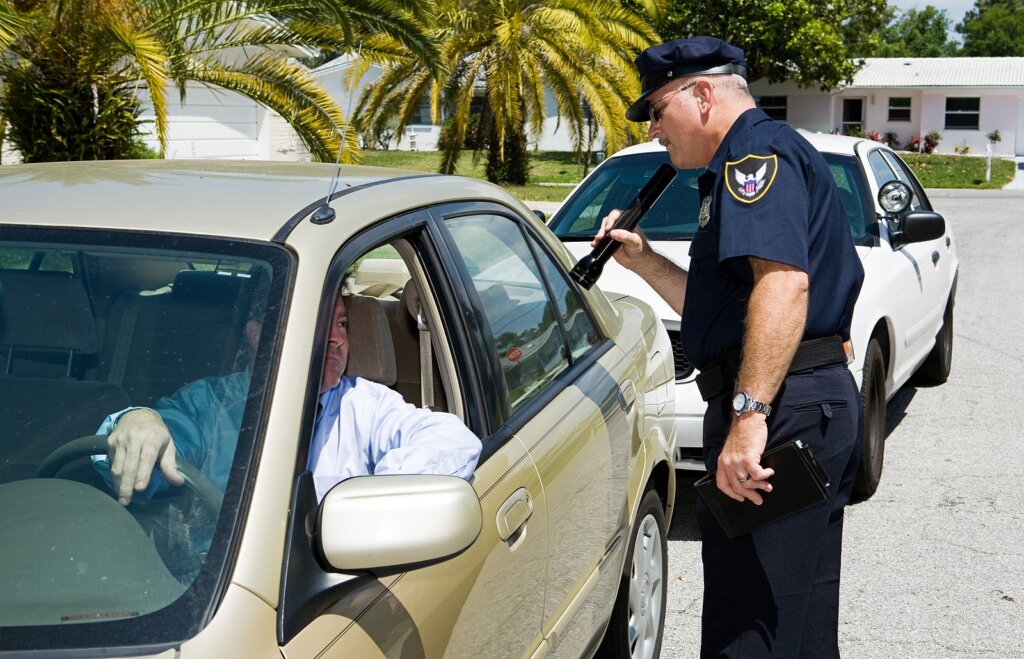Vehicular Crimes: Hit & Run, Vehicular Manslaughter & Negligent Homicide in NV
As a popular vacation destination, Las Vegas sees more than its share of vehicular traffic on a daily basis. When a driver is involved in a collision that results in injury or death, the driver may face civil as well as criminal consequences. Criminal liability may apply under one of the various Nevada laws related to vehicular crimes, including hit and run, vehicular manslaughter, and negligent homicide. To help you understand what criminal charges you could be facing, the Vegas Lawyers explain vehicular crimes in Nevada. If you have specific questions, contact us today by calling (725) 217-4768 to schedule your free consultation.

How Is “Hit and Run” Defined in Nevada?
Under Nevada law, you have certain obligations and responsibilities if you are involved in a motor vehicle accident. Specifically, you are required to stop at the scene of the accident, render aid if it is needed, and provide your name, registration, and address to anyone else involved in the accident. Furthermore, you must file a Nevada SR-1 accident report within 10 days of the accident if the police do not respond to the accident scene. Failing to fulfill your obligations under the law can result in criminal charges being filed against you for “hit and run.”
Leaving the scene of a property damage only accident (property “hit and run”) is charged as a misdemeanor in Nevada. If you are convicted, you face up to six months in jail and/or a fine of up to $1,000 along with demerit points charged against your driver’s license. If you leave the scene of an accident that caused injury or death (injury “hit and run”) you can be charged with a Category B felony for each person injured or killed in the accident. If convicted, you may be sentenced to two to 20 years in prison and/or a fine of up to $5,000.
What Constitutes Vehicular Manslaughter in Las Vegas?
Governed by NRS 484B.657, vehicular manslaughter occurs when a driver’s negligence causes the death of another person. Negligence can refer to an act or an omission on the part of the driver. For example, if you were distracted by your cell phone or by another occupant of the vehicle, and that distraction caused or contributed to a fatal accident, you could be charged with vehicular manslaughter. Likewise, if you knew that your brake lights were inoperable but failed to fix them and that failure caused or contributed to a collision that resulted in a fatality, you could be charged with vehicular manslaughter. In Nevada, vehicular manslaughter is a misdemeanor, punishable by up to six months in jail and/or up to a $1,000 fine if convicted. Note that if the accident occurred in a work zone or pedestrian safety zone, the penalties can be enhanced.
Can Reckless Driving Be a Vehicular Crime in Nevada?
In Nevada, you can be charged with reckless driving for drag racing, “trick” driving, or “driving with willful or wanton disregard of the safety of persons or property.” If your reckless driving results in a collision with a pedestrian or bicyclist, you could be charged with a misdemeanor or a gross misdemeanor, punishable by up to a year in jail and/or up to a $1,500 fine along with significant community service work and a lengthy license suspension.
Reckless driving can be elevated to a Category B felony in Nevada if it results in a fatal accident. For example, if you are drag racing and get into an accident that kills someone, you could be charged with a Category B felony, punishable by a minimum of one to six years in prison and/or up to a $5,000 fine. If you were operating the vehicle at a rate of speed that is 50 miles per hour or more over the posted speed limit or the accident occurred in a work zone or pedestrian safety zone, the potential maximum sentence is increased to 10 years in prison.
What Is Vehicular Homicide in Las Vegas?
Under Nevada law, vehicular homicide can be charged if an accident results in serious bodily harm or death and any of the following apply:
- The driver was under the influence of alcohol and/or drugs.
- The driver has a prohibited amount of a controlled substance in their blood.
- The driver had a blood alcohol content (BAC) of 0.08 percent or higher within two hours of driving.
Vehicular homicide under these conditions is charged as a Category B felony in Nevada, punishable by two to 20 years in prison and/or a fine of up to $5,000 along with a lengthy license suspension if convicted.
Vehicular homicide can be elevated to a Category A felony, punishable by 25 years to life in prison, if you have three previous DUI convictions and are ultimately convicted of driving under the influence and being involved in an accident that results in the death of another person.
What Should I Do If I Have Questions about Vehicular Crimes in Nevada?
If you have additional questions about hit and run, vehicular manslaughter, negligent homicide, or other vehicular crimes in Nevada, consult with the experienced Las Vegas criminal defense attorneys at The Vegas Lawyers as soon as possible to discuss your next steps. Call us at 702-707-7000 or contact us online.







